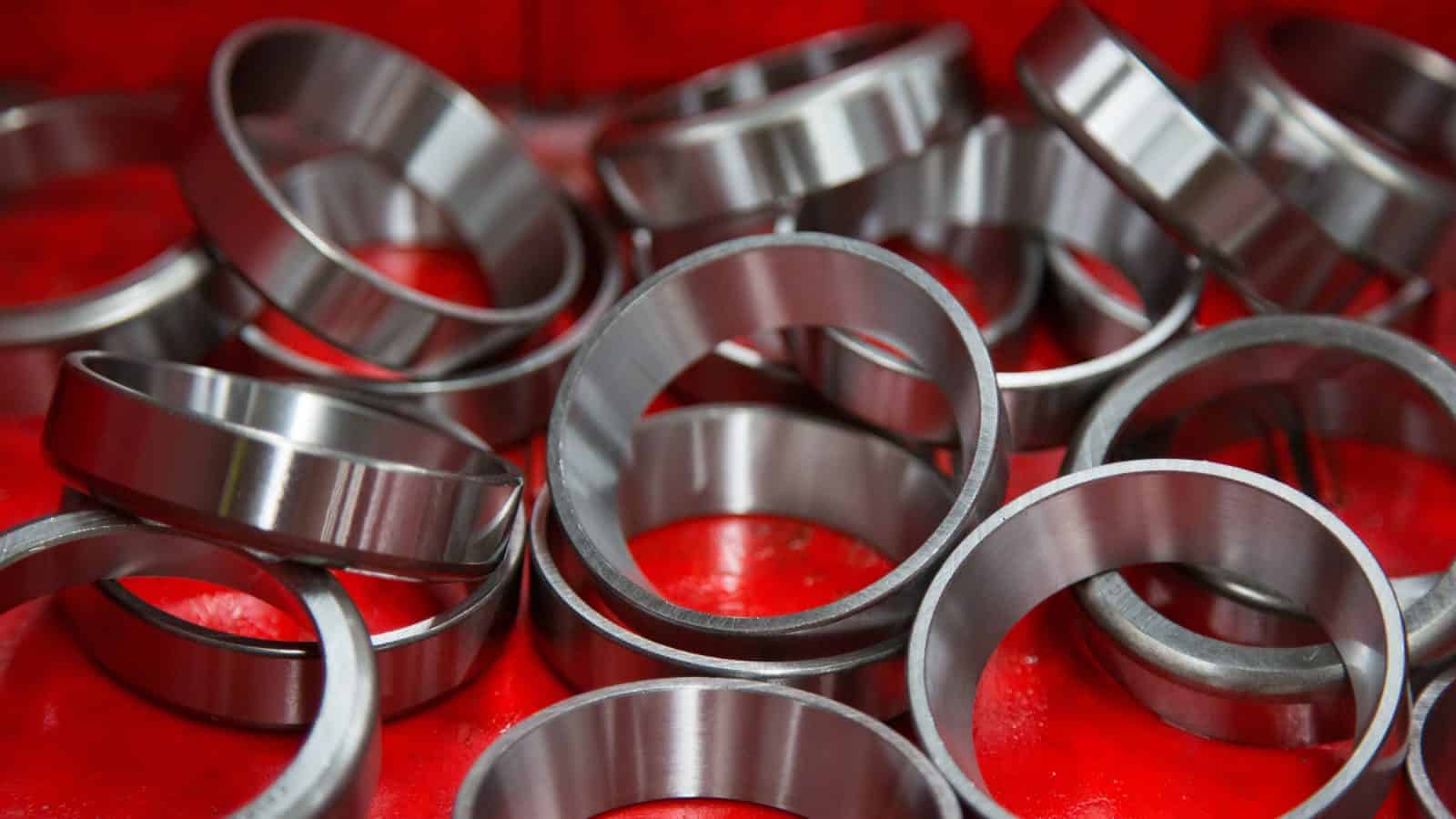Manufacturers Warn: PFAS Standards Threaten Industry and National Security
Washington, D.C. – Following the Environmental Protection Agency’s announcement on per- and polyfluoroalkyl substances in drinking water, National Association of Manufacturers President and CEO Jay Timmons issued the following response:
“We’re encouraged that the EPA has listened to the voices of manufacturers and extended the compliance deadline for unworkable national primary drinking water standards for PFOA and PFOS and committed to reconsidering the blatantly unlawful regulatory determinations for several other PFAS compounds.
“If the U.S. wants to stay a global manufacturing leader, we need practical, commonsense PFAS regulations. Manufacturers support science-based regulations that protect health and the environment and are in line with the Safe Drinking Water Act requirements. However, the Biden-era standards for PFOA and PFOS are deeply flawed, the costs they impose exceed any demonstrable benefit and the industries they harm include those vital to our national interests, including semiconductors, telecommunications and defense systems. The Pentagon has even raised alarms about long-term risks, including supply chain disruptions, that these standards would create.
“In addition to conflicting with manufacturers’ best interests, these standards also go against the Trump administration’s goal to make the U.S. the best place to build, grow and create jobs—a goal the administration is advancing by rebalancing regulations. The administration has done remarkable work to advance that goal, but today’s decision moves in the opposite direction.
“The decision runs counter to past efforts to cut red tape and boost manufacturing by putting shovels in the ground, more people to work, more products on the shelves and more prosperity into our communities. We don’t have to choose between supporting manufacturing and clean water in our communities.”
-NAM-
The National Association of Manufacturers is the largest manufacturing association in the United States, representing small and large manufacturers in every industrial sector and in all 50 states. Manufacturing employs nearly 13 million men and women, contributes $2.94 trillion to the U.S. economy annually and accounts for 53% of private-sector research and development. The NAM is the powerful voice of the manufacturing community and the leading advocate for a policy agenda that helps manufacturers compete in the global economy and create jobs across the United States. For more information about the NAM or to follow us on Twitter and Facebook, please visit www.nam.org.
Anheuser-Busch Partners with the Manufacturing Institute on Workforce, Veterans’ Careers
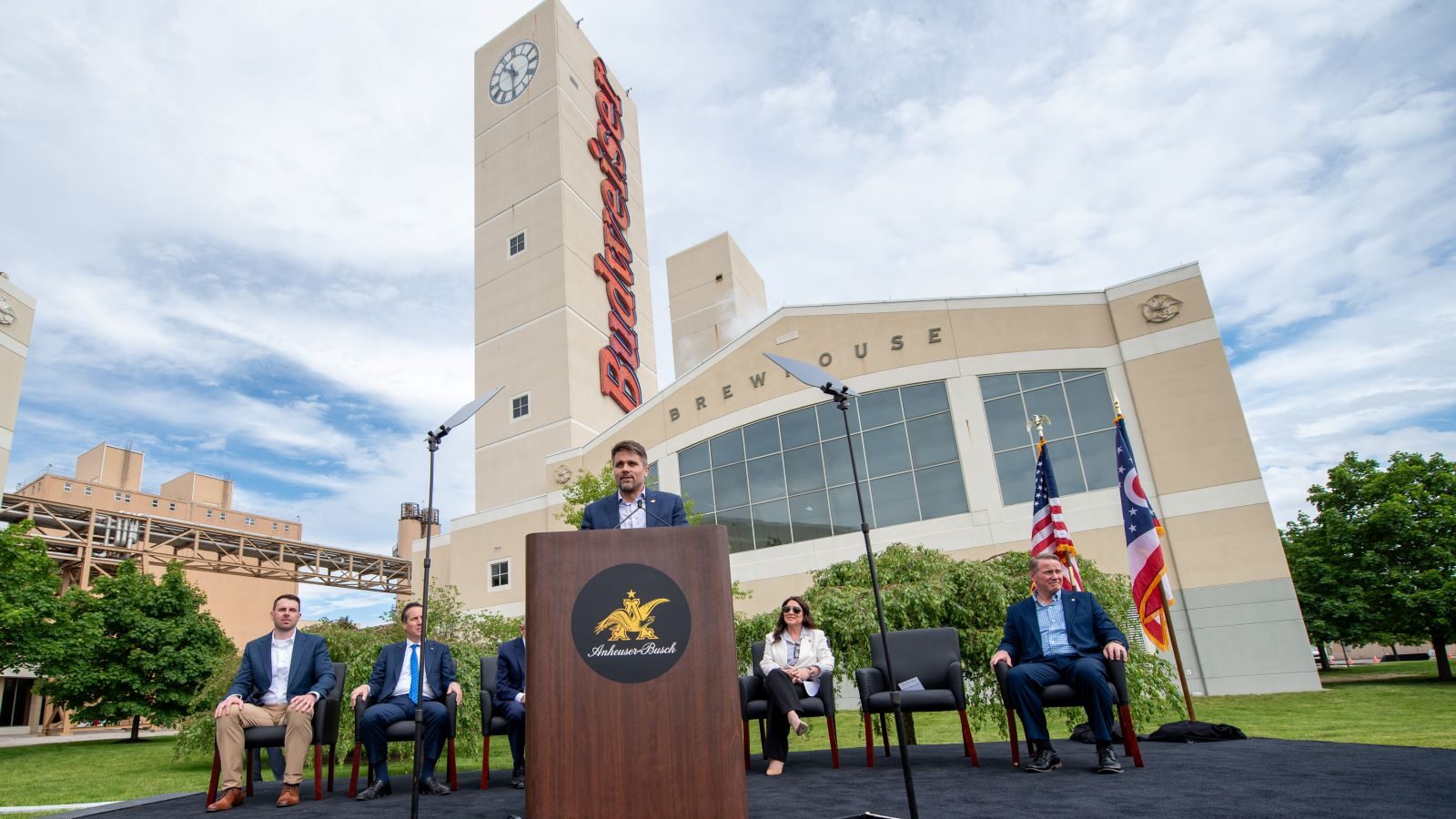
Anheuser-Busch, the maker of Budweiser and Bud Light among other products, is investing more than $300 million in local communities and facilities in 2025, including in efforts to upskill its workforce and help veterans find new careers at the company (Anheuser-Busch).
- This investment is a continuation of the more than $2 billion Anheuser-Busch has poured into 100 facilities across America over the past five years.
Heroes MAKE America: To support veterans in their new careers, Anheuser-Busch is partnering with the Manufacturing Institute—the NAM’s workforce development and education affiliate—to become the first manufacturer in the U.S. to adopt the MI’s new digital credentialing system for veterans.
- This system, overseen by the MI’s Heroes MAKE America initiative, translates military experience into skills needed for manufacturing careers, making veterans’ backgrounds more comprehensible to hiring managers.
- Anheuser-Busch will also train its workforce on the credentialing system, so that they understand the important skills that veterans will bring to the company and can evaluate the thousands of applications it will receive using the system.
Workforce training: Anheuser-Busch is also expanding its Technical Excellence Center model across the country, following its great success in St. Louis. The first new center will be its Columbus, Ohio, Regional Excellence Center, where it “will upskill its entire regional technical workforce over the next three years,” according to the company.
- The MI has a role in this expansion as well. Anheuser-Busch will partner with the MI and local trade schools so that trade school students and educators can benefit from the St. Louis and Columbus Technical Excellence Centers.
Anheuser-Busch says: “This new $300 million investment in our manufacturing facilities across the U.S. is the latest example of Anheuser-Busch’s commitment to strengthening our local communities by creating and sustaining jobs and driving economic prosperity,” said Anheuser-Busch CEO Brendan Whitworth. “Investing in our people and in new technologies and capabilities to drive industry and economic growth is core to who we are.”
From the MI: “Anheuser-Busch’s $300 million investment is more than a commitment to manufacturing in America—it’s a commitment to America’s future,” said NAM President and CEO and MI Chairman of the Board Jay Timmons.
- “By expanding technical training and strengthening our industrial base in Columbus, and with their support of the Manufacturing Institute’s Heroes MAKE America initiative, they are opening doors of opportunity for manufacturing workers across this country.”
- “This investment will help fuel our economy, lift up communities and secure the promise of manufacturing in America for generations to come.”
On the ground: The announcement of Brewing Futures took place in Columbus, Ohio, with Whitworth, Secretary of Labor Lori Chavez-DeRemer, Ohio Gov. Mike DeWine and Sens. Jon Husted and Bernie Moreno. Marking the significance of the announcement, MI President and Executive Director Carolyn Lee and NAM Executive Vice President Erin Streeter also attended the event.
- “It was great being on the ground in Columbus, Ohio, for this announcement with Brendan Whitworth and Secretary Chavez-DeRemer highlighting Anheuser-Busch’s commitment to supporting veterans and advancing our workforce,” said Lee.
- “Through our Heroes MAKE America initiative, we’re proud to partner with forward-thinking manufacturing leaders like Anheuser-Busch who are proactively building supportive communities of veterans within their organizations. By adopting tools like our Manufacturing Readiness Badge program, they are not just investing in people; they are helping shape the future of manufacturing.”
- “This investment will help fuel our economy, lift up communities and secure the promise of manufacturing in America for generations to come.”
Ways and Means Tax Bill Will Drive Manufacturing Investment and Job Creation
Bill Reflects Full Range of Manufacturing Priorities
Washington, D.C. – The National Association of Manufacturers commends Chairman Jason Smith (R-MO) and the House Ways and Means Committee for their bold leadership in acting on manufacturers’ top policy priority in our comprehensive manufacturing strategy: preserving and extending President Trump’s historic 2017 tax reforms. Today’s monumental action marks a vital step forward in securing a competitive tax environment that empowers manufacturers to create jobs, invest, grow and compete.
“Chairman Smith and the Ways and Means Committee are delivering what manufacturers in America have called for and what our industry needs to compete and win,” said NAM President and CEO Jay Timmons. “The 2017 tax reforms were rocket fuel for manufacturers—driving job growth, higher wages and investment in communities. This bill brings us closer to the vision of a 15% effective tax rate for manufacturers that President Trump and I discussed in 2016.
“For the 96% of manufacturers that are organized as pass-through businesses, this bill is more than policy—it’s a path to growth. It means the ability to buy equipment, hire workers, increase pay and expand operations with greater certainty and confidence. Not only is the Ways and Means Committee preserving the benefits of the Tax Cuts and Jobs Act for these businesses—this bill makes the law even more competitive, including by increasing and making permanent the job-creating pass-through deduction.
“The Ways and Means Committee’s bill reflects the full range of NAM tax priorities, which will drive manufacturing growth in America. To support small business job creation, the bill increases and makes permanent the pass-through deduction, also protects more family-owned manufacturers from the estate tax and maintains the TCJA’s pro-growth tax rates. To bolster America’s competitiveness on the world stage, the bill preserves the 21% corporate tax rate as well as the TCJA’s international tax provisions. And to incentivize investment and innovation in the United States, the bill revives and extends immediate R&D expensing, full expensing for capital equipment purchases and a pro-growth standard for interest deductibility.
“The stakes are clear: failing to preserve these policies will put nearly 6 million American jobs at risk. To keep the rocket fueled, Congress must act on the Ways and Means bill and make these pro-growth tax provisions permanent—because when manufacturing wins, America wins.”
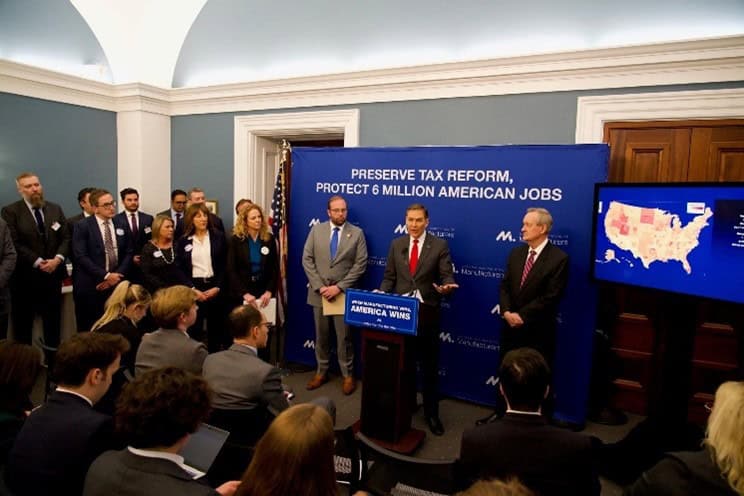
Timmons joins Chairman Smith to discuss the results of the NAM’s groundbreaking tax study at an event in January along with House Speaker Mike Johnson (R-LA), House Majority Leader Steve Scalise (R-LA) and Senate Finance Committee Chairman Mike Crapo (R-ID).
-NAM-
The National Association of Manufacturers is the largest manufacturing association in the United States, representing small and large manufacturers in every industrial sector and in all 50 states. Manufacturing employs nearly 13 million men and women, contributes $2.93 trillion to the U.S. economy annually and accounts for 53% of private-sector research and development. The NAM is the powerful voice of the manufacturing community and the leading advocate for a policy agenda that helps manufacturers compete in the global economy and create jobs across the United States. For more information about the NAM or to follow us on Twitter and Facebook, please visit www.nam.org.
Manufacturers: Let’s Tackle Health Care Costs Without Sacrificing Innovation or Competitiveness
Fix the Real Problem: Unregulated PBMs
Washington, D.C. – National Association of Manufacturers President and CEO Jay Timmons released the following statement today in response to President Trump’s executive order instituting a “Most Favored Nation” policy for prescription drug pricing:
“Biopharmaceutical manufacturers are investing in America. They are innovating cures and treatments for devastating diseases, and they are committed to ensuring that patients can access these life-changing and lifesaving medicines.
“Obstacles to innovation abound. It costs more than $2 billion to bring a new treatment to market, and it can take more than a decade to do so. Nearly 90% of all potential drugs that enter clinical trials never make it to FDA approval, and unregulated middlemen like pharmacy benefit managers drive up the costs of any drugs that are approved. Despite these challenges, biopharmaceutical manufacturers in America are leading the world.
“Manufacturers agree with President Trump that it is vital that Americans have affordable access to lifesaving treatments. That’s why the NAM has for years called on Congress to rein in PBMs. These powerful actors dictate what Americans pay at the pharmacy counter and drive rising health care costs for manufacturers and manufacturing workers alike.
“Importing European-style price controls won’t help Americans access medicines or make them cheaper. Rather, these policies will dampen innovation and R&D, threaten patient access and empower bureaucrats abroad to undermine America’s health system.
“Let’s not punish the innovators who develop and manufacture lifesaving medicines. Instead, let’s tackle the real problem: the middlemen. PBMs make billions by limiting patient choices, inflating prices and pushing costs higher for everyone—without actually making or delivering a single pill.
“Manufacturers are committed to lowering costs and expanding access to care—and to working with the administration to build on the PBM reforms in the Energy and Commerce Committee’s reconciliation bill with patient-first solutions that reduce costs, restore fairness and strengthen American competitiveness.”
-NAM-
The National Association of Manufacturers is the largest manufacturing association in the United States, representing small and large manufacturers in every industrial sector and in all 50 states. Manufacturing employs nearly 13 million men and women, contributes $2.93 trillion to the U.S. economy annually and accounts for 53% of private-sector research and development. The NAM is the powerful voice of the manufacturing community and the leading advocate for a policy agenda that helps manufacturers compete in the global economy and create jobs across the United States. For more information about the NAM or to follow us on Twitter and Facebook, please visit www.nam.org.
Manufacturers: U.S.–U.K. Deal Good First Step; Push for a Final Zero-for-Zero Tariff Deal
Washington, D.C. – On the 80th anniversary of Victory in Europe Day, National Association of Manufacturers President and CEO Jay Timmons released the following statement today in response to President Trump’s newly announced trade agreement with the United Kingdom—the first deal since the administration’s recent shift in global tariff policy last month:
“This is a strong start—but not the finish line. The NAM has long advocated for a comprehensive market-opening trade agreement with the U.K., and we welcome this initial commitment to work together to expand industrial market access—to create more manufacturing jobs and strengthen security on both sides of the Atlantic. This framework provides a meaningful foundation—but much more remains to be done. We will continue urging both governments to deliver a full zero-for-zero tariff agreement on all industrial goods at the end of these negotiations so that manufacturers have the certainty they need to plan, hire and compete.
“The U.K. is the fifth-largest market for U.S.-manufactured goods exports. In 2024 alone, manufacturers exported $61.6 billion in manufactured goods. At the same time, $58 billion in critical inputs—spanning automotive parts, pharmaceutical preparations and construction machinery—were imported from the U.K. to power U.S. production. In some sectors, up to 99% of these transactions are between related parties, underscoring the deeply integrated nature of our supply chains.
“Despite this integration, the administration has left the so-called ‘reciprocal’ tariff at 10% for many inputs necessary to keep Americans working. That’s why the NAM continues to call for zero-for-zero tariffs—adding certainty to strengthen competitiveness, lessen price pressures and support growth.
“We also see potential promise in the administration’s efforts to negotiate tailored arrangements on Section 232 tariffs on autos, steel and aluminum, with like-minded partners who share our national economic security interests.
“As the president indicated, we look forward to seeing full written details of the agreement in the coming weeks. With additional deals on the table—and just 61 days to act on the other 89 agreements—we need certainty and urge the administration to maintain momentum and deliver even more for manufacturers so they can invest, plan, hire and compete in America. At the same time, we urge Congress to make the 2017 tax reforms permanent now. If we see more trade agreements, tax reform legislation and more regulatory certainty—as part of our comprehensive manufacturing strategy—manufacturers win. And when manufacturers win, America wins.”
The Background
The NAM has led efforts to deepen U.S.–U.K. manufacturing ties for years. In Spring 2023, Timmons traveled to London to build support for a new trade accord and signed a memorandum of understanding with Make UK to strengthen bilateral manufacturing cooperation. The NAM has remained focused on core priorities, including:
- The elimination of tariffs and nontariff barriers;
- Strong digital trade commitments;
- Robust engagement on intellectual property issues;
- Collaboration on standards, technical regulations, testing procedures and conformity assessment; and
- Ensuring stronger alignment on customs procedures and approaches.
-NAM-
The National Association of Manufacturers is the largest manufacturing association in the United States, representing small and large manufacturers in every industrial sector and in all 50 states. Manufacturing employs nearly 13 million men and women, contributes $2.93 trillion to the U.S. economy annually and accounts for 53% of private-sector research and development. The NAM is the powerful voice of the manufacturing community and the leading advocate for a policy agenda that helps manufacturers compete in the global economy and create jobs across the United States. For more information about the NAM or to follow us on Twitter and Facebook, please visit www.nam.org.
How to Turbocharge Your R&D Leaders’ Careers

Every manufacturing executive has talented innovation leaders in the middle ranks of his or her company—managing a lab or department, but eager to move up. How do you prepare them for the next step in leadership so they can become the executives of tomorrow?
The Innovation Research Interchange, the NAM’s innovation division, offers a program designed to fill this gap in manufacturing professionals’ career development. The Shaping Innovation Leaders program, a partnership with Northwestern University, takes place over one packed week in June every year, and gives these midlevel managers a comprehensive introduction to business strategy, accounting and finance, organizational behavior, brand management and much more.
It’s the starter pack for those seeking to advance in the manufacturing industry. If you have someone on your team who could benefit, here’s what you need to know.
Who it’s for: The course is targeted at managers who have 10–15 years of experience and usually a graduate degree (most often a Ph.D.). These managers typically have several direct reports, oversee a lab or department and handle their own budgets.
- Past participants have worked at major manufacturers and related companies of all sectors, including Mars and FM Global.
What they’ll learn: This one-week intensive residential program—this year taking place June 8–13—features classes in the morning and afternoon, and also includes lunch, dinner and evening study and networking sessions. The courses include:
- Understanding Financial Statements;
- Evaluating Financial Results and Investment Projects;
- Financial Strategy and Cost of Capital;
- Driving Profitable Growth;
- Defending Your Brand; and,
- Law for Technical Executives.
Who’s teaching: The program is taught by eminent Northwestern faculty, including award-winning professors in marketing, management and finance.
- The program’s director, Adjunct Professor of Executive Education Marian Powers, boasts a long career of developing finance textbooks and software and specializes in teaching financial reporting and analysis to executives.
Inside the classroom: Every session of the program introduces participants to skills they may not have encountered in their technical positions. To take just one example, the High-Performance Negotiation Skills session introduces these managers to the framework and tactics that high-level leaders use in handling challenges.
- The course helps participants answer essential questions, such as “How should you think differently about negotiating as part of a team? How should you think about coalition-building in deals with many parties? How can you negotiate effectively from positions of weakness as well as strength?”
- To answer these questions, participants will examine case studies from the manufacturing industry. All the program’s sessions draw on real-world, relevant examples, ensuring that participants receive a useful toolkit of strategies.
What they’re saying: “Above all, this course illustrates a framework behind the motivations of our marketing and business/finance counterparts,” said one participant.
- “We no longer have the excuse of ‘why do they do it that way!?’ but rather, we can help those functions more effectively and proactively.”
Learn more and register: To learn more about the Shaping Innovation Leaders program or to register, visit the IRI site. This year’s program is still accepting applicants.
Hydro CEO: U.S. Must Reuse More Aluminum
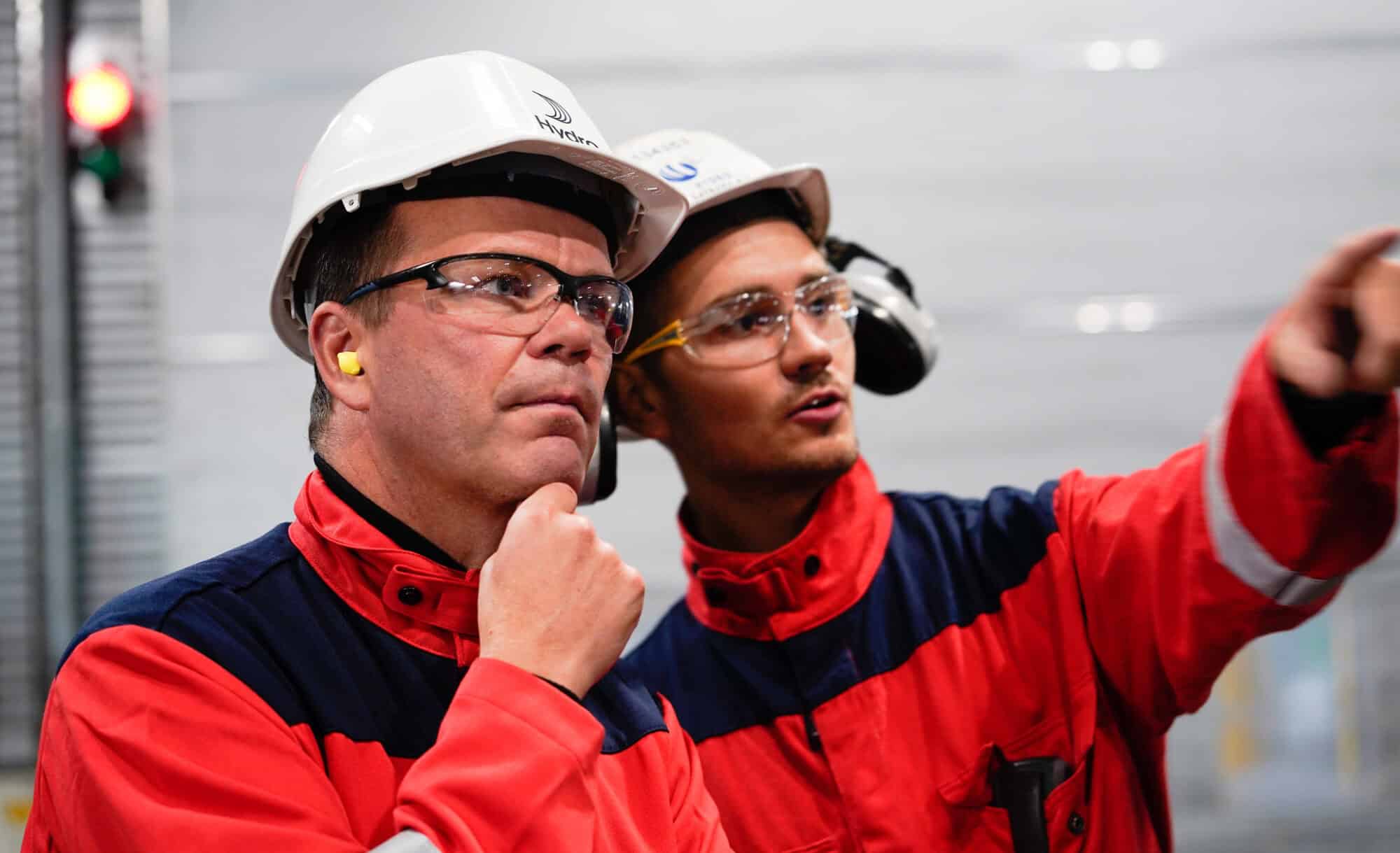
Aluminum is “an essential part of everything we do”—so we need to recycle more of it.
That’s the message from leading global aluminum and renewable energy company Hydro, based in Oslo, Norway, whose president and CEO, Eivind Kallevik, recently sat down with the NAM to discuss the importance of the metal to the U.S.
Ubiquitous and crucial: “Construction, automobiles, [energy and technology]—you’ll find an enormous amount of aluminum in all of that,” Kallevik told us. “Going forward, it will just become increasingly important.”
An energy imperative: The U.S. has an aging electrical grid—a matter on which the NAM has long issued a clarion call—and modernizing and expanding it to meet Americans’ energy appetite will require aluminum, and a lot of it.
- “There’s going to be a huge increase in demand for electricity, especially given [the growth in construction of] data centers,” said Kallevik.
- For vehicles to become more energy-efficient, they must be lighter, and “the best way of doing that is more aluminum.”
A workhorse: One of the metal’s best qualities is its ability to withstand nearly endless reuse, Kallevik said.
- “You can recycle it infinitely. If you sort it the right way, you will be able to take it back to exactly the same state it was in in the first place.”
- Hydro—which has operations in 17 states and employs thousands of people in the U.S.—has multiple aluminum recycling facilities throughout the country, including at sites in Pennsylvania, Indiana, Illinois, Louisiana, California and Texas.
Keep more at home: “The more [aluminum] you can keep onshore, the better it is” for manufacturing, the economy in general and national security, Kallevik continued, adding that aluminum is critical in many U.S. defense applications.
- “If the U.S. kept more scrap exports onshore, we would reduce dependence on third parties” for the metal, he said.
Policy and supply chains: Because building is a heavily energy-intensive process, “energy policy is going to be increasingly important” in the coming years, Kallevik went on.
- “To protect its industries, the U.S. needs to ensure a fair regulatory framework to ensure that everybody in a global context competes on a level playing field,” he told the NAM.
- And when it comes to shoring up domestic supplies of aluminum, “to be more self-sufficient, the short-term solution for the U.S. is recycling,” he said. “Use what’s on the ground today, and for tomorrow, build capacity.”
NAM to House: Regulate Proxy Firms, Protect Workers’ Retirement Savings

Congress should act now to ensure that manufacturers and manufacturing workers are protected from so-called “proxy advisory firms,” the NAM told House lawmakers this week at two congressional hearings.
Flaws abound: Proxy firms—powerful, unregulated entities that advise institutional investors on how to vote on proxy ballot measures at public companies—wield outsized influence and must be reformed, NAM Managing Vice President of Policy Charles Crain told the House Subcommittee on Capital Markets at a Tuesday hearing, “Exposing the Proxy Advisory Cartel: How ISS & Glass Lewis Influence Markets.”
- Proxy firms operate with undisclosed conflicts of interest, are unwilling to allow companies to review their draft reports, and are resistant to correcting mistakes in their final vote recommendations. Despite these flaws, proxy firms “still control a significant share of investors’ proxy votes—giving them sway over important corporate decisions,” Crain said.
- In 2020, after years of NAM advocacy, the Securities and Exchange Commission finally adopted a rule to rein in these powerful firms—yet today, proxy firms remain unregulated due to ongoing legal challenges and regulatory neglect.
- “The SEC’s 2020 rule has spent five years hung up in court,” Crain told the subcommittee. “The NAM has had to defend the rule across three separate cases—one of which has oral arguments scheduled for this Friday.”
SEC has authority: Although the largest and most influential proxy firm, Institutional Shareholder Services, “is now claiming in court that the SEC lacks the authority to regulate proxy voting advice at all,” the Securities Exchange Act of 1934 clearly provides the SEC the authority to regulate proxy solicitation, which includes the activities of proxy firms, the NAM said.
Tighten the reins now: “Even assuming that the NAM is successful in defending the SEC’s authority, there is more work for Congress to do,” Crain continued. This entails acting on six House bills that would:
- Create a comprehensive registration regime for proxy firms;
- Ensure that proxy firms remain subject to anti-fraud liability;
- Ban certain proxy firm conflicts of interest;
- Regulate the use of automated “robo-voting” systems;
- Ensure that investment managers carry out their fiduciary duties to their clients when hiring proxy firms; and
- Direct the SEC to conduct a thorough study on proxy firms and the proxy process.
Retirement savings in jeopardy: On Wednesday, Crain delivered a similar message for the House Subcommittee on Health, Employment, Labor, and Pensions at a hearing titled “Investing for the Future: ERISA’s Promise to Participants.”
- “More than 85% of manufacturing workers are eligible to participate in a workplace retirement plan. These Americans have probably never heard of a proxy firm, and they likely would be shocked to hear that their pension or 401(k) plan assets were being used in a way that could undermine their own retirement security,” Crain explained.
- But that’s exactly what’s happening when pension plan fiduciaries use “plan assets to pursue non-financial ESG goals—or blindly outsourc[e] the voting rights that come with those assets to unregulated and conflicted proxy firms,” he added.
- With their errors, conflicts of interest, political agendas, one-size-fits-all governance standards and more, proxy firms pose huge risks “to everyday Americans’ retirement security,” Crain said.
Manufacturers support guardrails: “That’s why manufacturers support appropriate guardrails to ensure that ERISA fiduciaries act in plan participants’ best interests when making investment and voting decisions,” Crain explained, adding that the Labor Department under the first Trump administration finalized rules to “do just that.”
- While the last administration largely rescinded those guardrails, Subcommittee Chairman Rick Allen (R-GA) recently introduced a measure that would require ERISA retirement plan fiduciaries to prioritize financial returns when making investment decisions on behalf of clients and to exercise closer oversight of proxy firms.
Stand up for workers: “Now is the time for Congress and the [Department of Labor] to stand up for these workers and ensure that ERISA plans are operating in their participants’ best interests,” Crain concluded.
In the news: Bloomberg (subscription) covered Crain’s testimony, as did Pensions & Investments (subscription) in two articles.
What’s next: As Crain previewed in his testimony, the NAM Legal Center will participate in oral arguments on Friday, May 2, before the U.S. Court of Appeals for the DC Circuit—arguing that the SEC has the authority to regulate proxy firms, and that the agency’s 2020 rule doing so was lawful.
- “Is this high stakes? Absolutely,” Crain told Bloomberg. “Is this the end of the fight if the NAM were to lose? No, it’s not.”
Timmons Presses for Comprehensive Manufacturing Strategy in NewsNation, FOX Business Interviews
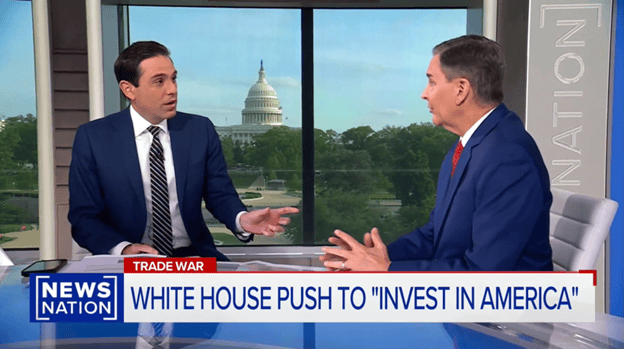
In a one-on-one interview with NewsNation’s Blake Burman just hours before President Trump spoke at a town hall with the same network, NAM President and CEO Jay Timmons continued to underscore the need for a comprehensive manufacturing strategy to make long-term investments.
- “First and foremost, we have got to get those tax reforms from 2017—that rocket fuel that President Trump announced at our board meeting in 2017—renewed, and Congress needs to move that forward,” Timmons said.
- “Regulatory rebalancing is something that’s very important. It’s about $50,000 per employee per year in compliance costs; that’s pretty expensive. We also need energy dominance. [Trump is] well on his way to making that happen.”
- He added that we need “good, solid trade policy” so manufacturers don’t see added costs. “We’re waiting to see how all this comes out. And we’re hopeful.”
- “If you have a comprehensive manufacturing strategy that you’re implementing … that includes all of those things I just mentioned to bring down the cost of business doing business here in the United States, you absolutely will see more investment,” he continued. Trump “announced that $5 trillion has already been committed. You’ll see more jobs, and you’ll also see higher wages and benefits.”
The long view: “Massive facilities … take a little while,” Timmons told Burman. “That is a realization that I need Americans to understand.”
- Such sites typically take years, he said, with the exact number depending “on how localities and states are moving along the permitting process.”
- “I was George Allen’s chief of staff when he was governor of Virginia,” Timmons went on, “and he made a commitment that he was going to move large scale projects in a very expeditious way. And we had a huge chip manufacturer that made an announcement, and [the company] said the doors will open in one year. [T]hey did, and that’s because all of government was really focused on doing that. You’ve got that commitment from this administration, there’s no doubt about that, but it’s typically three to five years for a large-scale manufacturing operation to come to fruition, and you’re talking about a 30-year commitment.”
- “So that’s another reason we need permanence when it comes to tax policy and trade policy.”
FOX Business: Timmons recently spoke with a group of FOX Business reporters to discuss the comprehensive strategy needed from Congress, focusing specifically on tax, trade and the manufacturing workforce.
- In a story from that interview published today, he said: “The 2017 tax reforms that President Trump actually announced at our board meeting in 2017, [which he said] would be rocket fuel for the economy … indeed were. Those tax reforms led to record investment and job creation and wage growth for three years running after they were in enacted.”
NAM: Comprehensive Manufacturing Strategy Will “Ignite” Renaissance
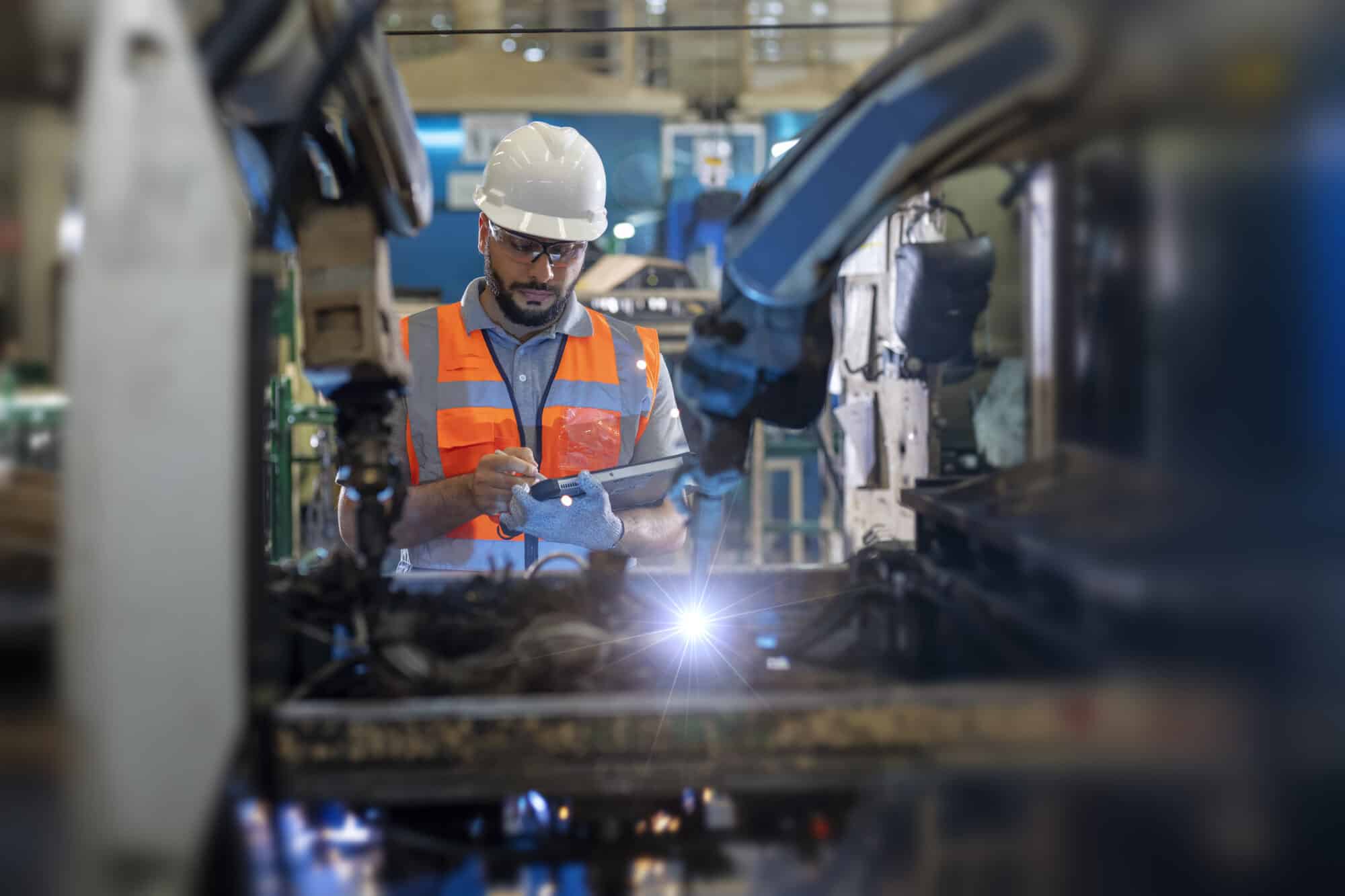
The NAM’s comprehensive manufacturing strategy will be fundamental in “igniting the Industrial Renaissance of the United States,” the NAM told a House committee today ahead of a hearing of the same name.
What’s going on: “Manufacturers call on President Trump and Congress to implement a comprehensive manufacturing strategy that would create predictability and certainty to invest, plan and hire in America,” the NAM told the House Committee on Oversight and Government Reform.
- The purpose of the hearing was to examine how “cheap labor abroad, combined with overregulation and obstacles to permitting in the United States, contributed to the offshoring of American manufacturing and an overreliance on China to fulfill manufacturing needs.” It also emphasized “the importance of bringing manufacturing back to the United States.”
What we’re saying: The NAM has been advocating that the administration adopt a multipoint plan to see the manufacturing sector flourish. Today it urged President Trump and Congress to take the following actions from that strategy as soon as possible:
- Make 2017 tax reform permanent: Make permanent the pro-manufacturing tax measures scheduled to sunset at the end of 2025 and bring back already expired provisions. Failure to do so will put almost 6 million U.S. jobs at risk, according to a recent EY–NAM study.
- Rebalance federal regulations: Manufacturers now spend $350 billion a year to comply with federal regulations. That’s money that could be spent on factory expansions, hiring and/or wage raises, as NAM President and CEO Jay Timmons has pointed out. The NAM also recently urged 10 key federal agencies to revise or rescind dozens of onerous, anachronistic regulations.
- Expedite permitting reform: “America should be the undisputed leader in energy production and innovation, but we will not reach our full potential without permitting reform.” This must include expediting judicial review, accelerating the permitting process, creating enforceable deadlines and more.
- Implement commonsense trade policies: “Building things in America only works if we can sell them around the world,” the NAM told the House members. “That is why manufacturers urge President Trump and Congress to provide greater predictability and a clear runway to allow them to adjust to new trade realities, while also making way for exemptions for critical inputs, enabling reciprocity in manufacturing trade.”
